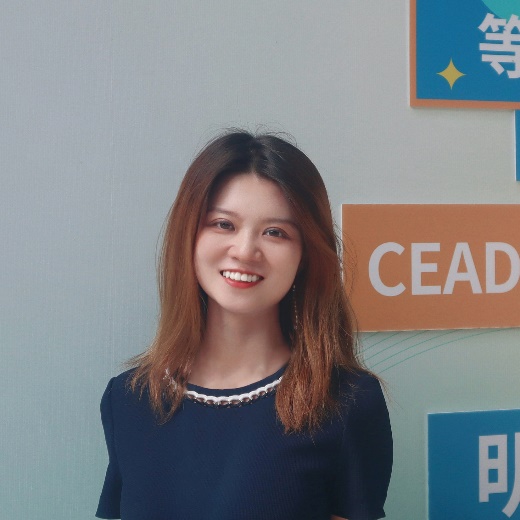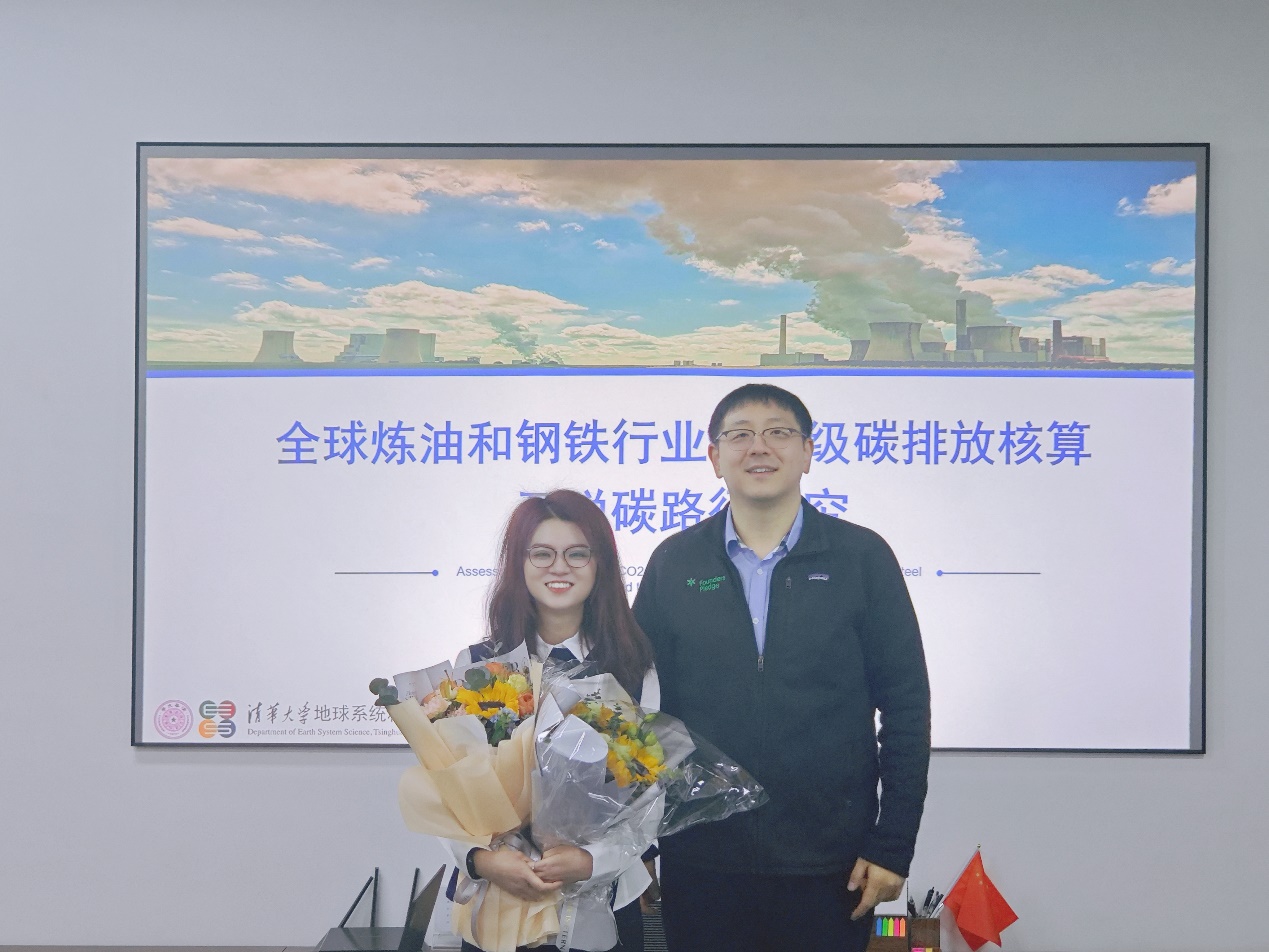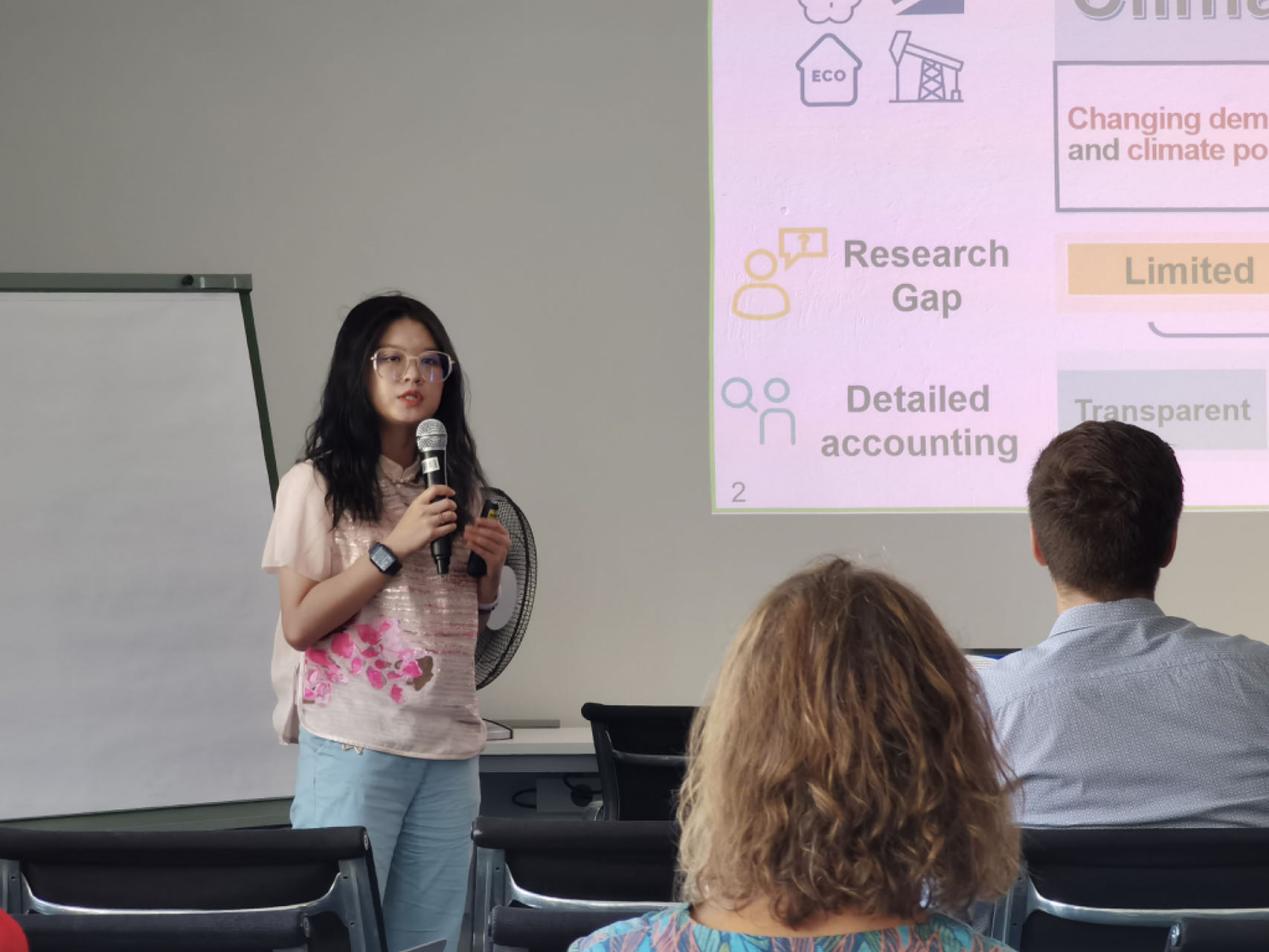Lei Tianyang is a doctoral candidate in ecology in the Department of Earth System Science (DESS) at Tsinghua University. Mentored by Professor Guan Dabo in 2024, she focuses her research endeavors on refined carbon emission accounting and the evaluation of decarbonization pathways for global high-energy-consuming industrial facilities. During her doctoral studies, she has distinguished herself by publishing three academic papers as the lead or co-author and filing three invention patents. Her research achievements have garnered significant recognition from esteemed institutions such as the National Energy Administration, the Ministry of Science and Technology, and numerous authoritative bodies in the international energy economy field. In recognition of her outstanding contributions, Lei Tianyang has been honored with the titles of Tsinghua University Excellent Doctoral Graduate, Tsinghua University Excellent Doctoral Dissertation, Tsinghua University Postgraduate Special Scholarship, and the National Doctoral Scholarship. As one of the five doctoral representatives from China, she participated in the prestigious summer young scientist program organized by the International Institute for Applied Systems Analysis. Currently, she has embarked on a postdoctoral research journey at University College London.

Innovative Scientific Research Yields Impressive Results
Lei Tianyang has consistently demonstrated a profound interest in the relationship between humanity and nature amidst the backdrop of climate change. Commencing her academic journey at Tsinghua University, she delved into diverse realms, examining the potential ramifications of climate change on crop productivity and international trade dynamics. As her research pursuits progressed within her academic group, Lei Tianyang came to recognize the paramount importance of a robust data foundation as an indispensable cornerstone for scientific inquiry. Confronted with the challenges inherent in bridging the gap of foundational data, Lei Tianyang courageously embraced these difficulties. Focusing her efforts on the industries of steel and oil refining, which are globally acknowledged as industries for which emissions hard to reduce, she clarified the intricate smelting processes of these industries, tracing the origins of carbon emissions throughout their production chains. Her research actively probed into the transformational pathways for these traditional, high-emitting sectors, exploring how they might navigate the transition towards carbon neutrality and ultimately steer towards a greener, more sustainable future.
“The challenge in mitigating emissions in the oil refining and steel industries stems from the intricacies of their production processes, numerous emission points, and the immaturity of emission reduction technologies,” said Lei Tianyang. The absence of facility-level data hinders the translation of regional and industry-wide emission reduction targets into actionable factory-level strategies, thereby posing a challenge in satisfying the academic exploration and informed decision-making for technology-driven, precise emission reduction efforts..
To address this gap, Lei Tianyang, under the mentorship of Professor Guan Dabo and the auspices of the Department of Geology, has devised a comprehensive suite of process-based accounting methodologies and data systems tailored to high energy-intensive industries at the facility level. This groundbreaking work enhanced the granularity of carbon emission profiling, extending from regional and industrial scales down to individual facilities and processes, thereby bolstering the characterization capabilities for key sectors within high-energy-consuming industries.
Focusing on the oil refining and steel industries as exemplars, an exhaustive carbon emission inventory was compiled for thousands of steelworks and refineries (comprising over 10,000 production units) worldwide. Furthermore, the study quantified the decarbonization pathways facilitated by individual plant-level interventions and policy-driven technologies, offering a robust data foundation and scientific underpinning for facilitating orderly, efficient, and precise low-carbon transitions within key energy-intensive industries globally. These research findings have garnered widespread attention and coverage from reputable energy economics organizations and media outlets both domestically and internationally.
Lei Tianyang acknowledges that these research outcomes represent not merely a testament to her steadfast dedication to scientific endeavors and meticulous refinement of data pertaining to individual plants and units, but are also inextricably linked to the guidance of mentors and the collaborative efforts of her team. Throughout the span of over four years of research, Lei encountered numerous instances where she contemplated relinquishing her pursuits amidst data scarcity and the sluggish progression across tens of thousands of units. Nevertheless, the unwavering encouragement from her mentor sustained her resolve. Professor Guan Dabo imparted to Lei Tianyang the wisdom that "data and methodologies form the bedrock of scientific inquiry, and we must forge our own core competencies in a spirit of craftsmanship while fostering continuous growth." These words resonated deeply within Lei Tianyang, serving as a perpetual impetus driving her forward. From Lei's perspective, the present accomplishments merely mark the commencement of a broader journey, as escalating climate risks pose novel challenges to energy-intensive industries. She noted, “Looking ahead, we remain committed to supporting the dual-carbon strategy and addressing real-world demands. Whether it entails the ongoing enhancement and refinement of facility data, the development of carbon reduction technologies and adaptation strategies, or the exploration of carbon-neutral transformation pathways for facilities amidst multifaceted constraints, our path forward is lengthy, fraught with opportunities.”

Photo: Lei Tianyang and her mentor Professor Guan Dabo
Expanding Research Horizons and Experiencing Global Changes
Lei Tianyang steadfastly believes that seminal research endeavors are inherently intertwined with extensive academic exchanges and rigorous research foundations. Consequently, during her doctoral studies, she actively engaged in diverse academic pursuits, fostering interactions with scholars and practitioners from diverse backgrounds and research directions. This approach has significantly broadened her research horizons and stimulated fresh inspirations for scientific research. In 2022, Lei distinguished herself amidst a competitive pool of over 3,000 global applicants, being selected as one of five Chinese doctoral representatives for the prestigious Summer Young Scientists Program hosted by the International Institute for Applied Systems Analysis (IIASA) in Austria. This opportunity enabled her to collaborate and exchange ideas with over 50 doctoral students from across the globe.
Besides IIASA collaborations, Lei Tianyang observed Austria, a pioneer in global zero-carbon development, advancing in various fronts including industrial production, ecological preservation, and societal advocacy. Moreover, she personally experienced the ripple effects of the European energy crisis during the winter of 2022, including skyrocketing heating costs and societal unrest, which underscored the profound implications of balancing low-carbon transformation with energy security. These experiences have profoundly illuminated for Lei that the low-carbon transition transcends mere environmental concerns; it is a pivotal issue intimately tied to the vital interests of all. Consequently, her research endeavors hold not only theoretical merits but also practical significance, necessitating meticulous refinement of every datum and conclusion.

Lei Tianyang makes a presentation at IIASA
Furthermore, Lei Tianyang embraces every opportunity for fieldwork with utmost enthusiasm. In the summer of 2021, she embarked on a doctoral social practice journey to Shizuishan City, Ningxia, an experience that profoundly influenced her academic trajectory. During this endeavor, she visited steel, rubber, and non-ferrous metal smelting factories, among others, to gain firsthand insights into the relationship between production and emissions, industry frontiers, and market choices. This immersion provided her with a profound understanding of the real-world challenges and urgency of carbon and emission reduction efforts. These unforgettable experiences solidified Lei Tianyang's conviction and resolve to contribute to the ambitious goal of achieving “carbon peaking and carbon neutrality” targets through her research endeavors.
During her studies in the DESS, Lei Tianyang has come to deeply realize that confusion should not be taken as an excuse for stagnation. Rather, confusion necessitates perseverance and continuous exploration. Confusion, she has come to realize, is not a terminal point but a new beginning, fueling the momentum to press ahead. She acknowledges that in the realm of scientific research, confusion and uncertainty are endemic, yet each such predicament fosters novel discoveries and groundbreaking advancements. Both the perspiration expended in striving for progress and the tears shed during emotional breakdown eventually coalesce into the luminous crystallization of one's life journey.
In the future, Lei Tianyang aspires to uphold a curious, rigorous, and diligent mindset, regardless of her location. She endeavors to industriously pursue scientific research and constantly forge ahead on the academic path, unremittingly striving for excellence.
Written by Lei Tianyang